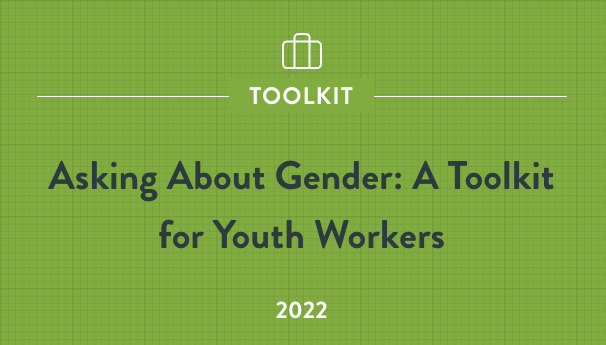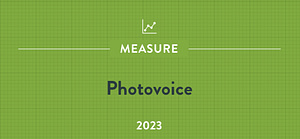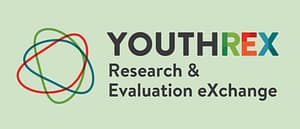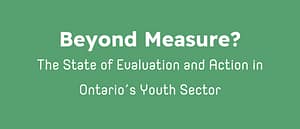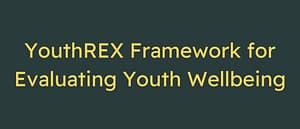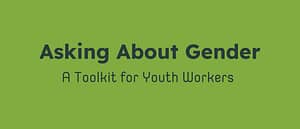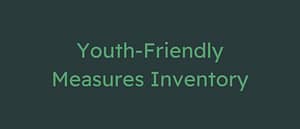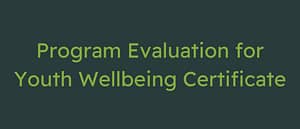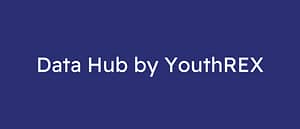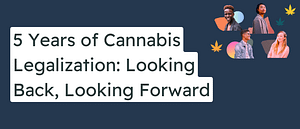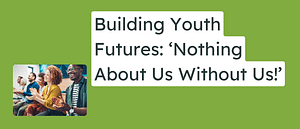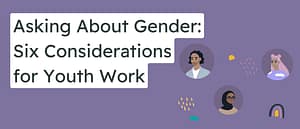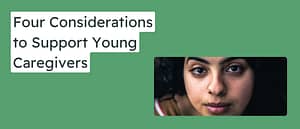
The conversation with Kathe Rogers begins in her home, a setting that reflects the grassroots, community-oriented ethos of her work with the Youth Research and Evaluation eXchange (YouthREX). Introducing herself, Kathe speaks directly to the thread that has tied together her professional journey. “I’m a registered social worker and the Managing Director at YouthREX,” she begins. “I’ve worked in various roles, but the common thread throughout my time at YouthREX, and throughout my career, has always been storytelling.”
Kathe recalls her early career in communications and advocacy within the nonprofit sector before pursuing a Master’s in social work at York University. “That’s where I met Dr. Uzo Anucha, YouthREX’s Founder and Academic Director,” she says. “As a graduate student, I was able to draw on my communications background and social work education to support community-engaged projects that would provide the foundation for YouthREX – all centered on critical positive youth development, meaningful youth engagement, and social action.” Later, Kathe supported the proposal that initially funded YouthREX, and, in 2017, she returned to the School of Social Work at York (where YouthREX is based) to take on a full-time role with the team.
YouthREX’s perspective on evaluation was deeply informed by community-engagement and an understanding of opportunities and barriers in the youth sector. “Evaluation is storytelling,” Kathe explains. “It’s not just about measuring or proving impact; it’s about learning from the programs we create, amplifying voices, and sharing those stories in meaningful ways. At YouthREX, we centre the experiences of youth and youth workers because they are the drivers of our work.”
Kathe points out that YouthREX’s primary stakeholders are grassroots youth workers, and often, youth themselves. “Our work is rooted in meeting youth workers where they are, understanding their needs, and supporting them in ways that improve youth well-being,” she says.
“That’s where evaluation becomes powerful – it’s a tool to learn and adapt, not just to meet external demands but to better serve youth.”
She describes the development of YouthREX as an effort to make evaluation accessible and relevant to grassroots programs. “Evaluation has been central to YouthREX since its founding,” she says. “Initially, we were supporting the Ministry of Children and Youth Services’ Stepping Up framework, which provided outcomes and indicators for the youth-serving sector. And we wanted to go further – breaking down the evaluation process into seven steps and three phases and simplifying the jargon, supporting programs to embed evaluation in their program design and planning.”
Kathe elaborates on the guiding lenses of YouthREX’s Framework for Evaluating Youth Wellbeing. “One is the learning-focused lens, which emphasizes improving over proving,” she explains. “Then there’s the youth-engaged lens, ensuring young people’s voices and experiences shape evaluation. Lastly, the contextualized multi-methods lens recognizes the need for approaches that resonate with youth, like arts-based tools, focus groups, or games.
"Evaluation shouldn’t feel like a rigid or inaccessible process – it should meet youth and youth workers where they are.”
Equity, diversity, and inclusion are central to YouthREX’s evaluation practices. Kathe highlights the organization’s efforts to support programs in conducting evaluations that reflect their specific contexts and communities. “We focus on reducing power imbalances,” she says. “Evaluation can feel top-down, but we ensure everyone impacted by a program is involved from the beginning, co-creating evaluation plans, designing surveys, and making sense of the data together.”
One example she shares is a toolkit YouthREX developed to guide youth programs in asking gender-inclusive questions. “It’s a practical resource that includes templates, definitions, and encourages programs to question why they need certain data,” she says. “It helps programs not only collect data inclusively but also advocate for more expansive understandings of their participants.”
The conversation shifts to YouthREX’s tools, including the Youth-Friendly Measures Inventory. “This resource has been incredibly popular – even globally,” Kathe notes. “It’s part of our commitment to ensuring that youth programs can access a variety of tools to collect both qualitative and quantitative data, and to building their capacity to lead evaluation work.”
She emphasizes the importance of qualitative approaches, saying, “Stories are data, too. By making evaluation tools accessible, we help programs gather meaningful data in ways that align with their capacity and resonate with youth. This includes generating themes from stories instead of solely focusing on numbers.”
Kathe also describes YouthREX’s newly launched Data Hub, which compiles Ontario-specific youth well-being data. “It allows programs to explore trends, generate visualizations, and use this information in proposals or program designs,” she explains. “Our goal is to make data relevant, accessible, and meaningful, an approach modelled on YouthREX’s Knowledge Hub, which connects shared knowledge to youth work practice.”
Reflecting on partnerships with grassroots programs, Kathe shares insights from her years of experience. “Youth workers are often a first point of contact for young people,” she says. “During the pandemic, we saw how programs adapted quickly to meet changing needs, with youth workers showing immense dedication despite limited resources. Their willingness to continue understanding and improving their impact has been inspiring.”
Creative approaches to evaluation, like digital storytelling, also play a significant role in YouthREX’s work. Kathe recounts a community-engaged research project in Toronto’s Jane and Finch neighbourhood, where youth used Photovoice to document their community. “They took photographs and shared the meanings behind them,” she says. “This method allowed them to express love and connection to their community in ways that challenged deficit-based narratives.”
She also describes a recent example involving a small youth program exploring the use of digital storytelling. “We discussed giving youth the tools to interview each other or share their stories creatively,” she says. “This approach captures qualitative data rooted in lived experience, emotion, and feeling – offering insights that traditional methods can miss.”
As the conversation concludes, Kathe reflects on YouthREX’s mission. “At the heart of it, our work is about creating spaces where youth and youth workers feel seen, safe, and supported,” she says. “Evaluation is not just a requirement – it’s a tool for learning, adapting, and amplifying the voices of youth and youth workers.”
Her final thoughts encapsulate the essence of YouthREX’s work. “It’s about ensuring that the experiences and agency of youth and the people who support them are not only heard but truly understood.”
As the interview comes to an end, it’s clear that Kathe Rogers is deeply committed to supporting youth workers and grassroots programs in creating meaningful change. YouthREX’s work is not just about developing evaluation tools – it’s about empowering organizations to amplify the voices of youth and the people who support them, ensuring their stories are valued and understood. With YouthREX’s guidance and support, evaluation becomes more than a reporting task – it transforms into a powerful tool for learning, adapting, and driving positive outcomes in communities across Ontario.
Further reading
More from Kathe on YouthREX's blog
Get to know Kathe

Kathe Rogers



